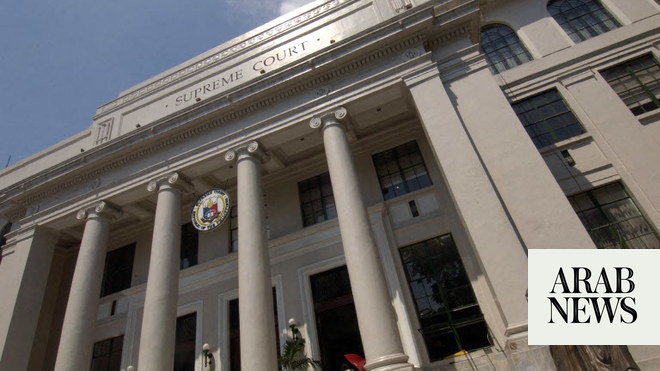
MANILA: The Supreme Court of the Philippines reaffirmed on Thursday the strengthened role of Shariah courts in the Philippine judicial system, a move seen as marking a significant step in recognizing their autonomy.
Shariah, or Islamic law, is partially implemented in the Philippines, applicable only to the Muslim community — about 6 percent of the 110 million predominantly Catholic population of the country.
Established under the 1977 Code of Muslim Personal Laws (Muslim Code), Shariah courts are under the administrative supervision of the Supreme Court and have jurisdiction over the Bangsamoro Autonomous Region as well as other parts of the southern Mindanao island, which have significant Muslim populations.
The courts have application over personal status law, including marriage, as well as financial laws and halal certification.
Thursday’s decision on the scope of their jurisdiction followed a decision by the Shariah District Court in Cotabato City, which directed to a civil court a case involving contracts of loan. The Supreme Court ruled that the SDC erred in dismissing the case based on a perceived lack of applicable Muslim law.
“(The Muslim Code) does not limit the SDC’s jurisdiction to actions involving the application of this law’s provisions. On the contrary, the catch-all provision grants SDCs jurisdiction over nearly all personal and real actions between Muslims,” the court said.
“Shariah courts are autonomous bodies which do not need to lean on civil courts.”
The court also stressed its goals under the Strategic Plan for Judicial Innovations 2022-2027, to “strengthen the Shariah justice system” and study the possibility of expanding its mandate to cover both criminal and commercial cases.
The Supreme Court’s decision reaffirming the empowered role of Shariah courts in the Philippine judicial system marked a “significant step in recognizing their autonomy,” said National Commission on Muslim Filipinos spokesperson Yusoph Mando.
“The court underscored that while the Muslim Code encapsulates personal and family laws, it does not exhaust all aspects of Muslim law, leaving room for additional, relevant laws to be presented as evidence during trial,” he told Arab News.
“The Court clarified that the Muslim Code’s catch-all provision grants SDCs jurisdiction over various personal and real actions among Muslims, thereby not limiting their purview to specific types of cases.”
This post was originally published on this site be sure to check out more of their content.








